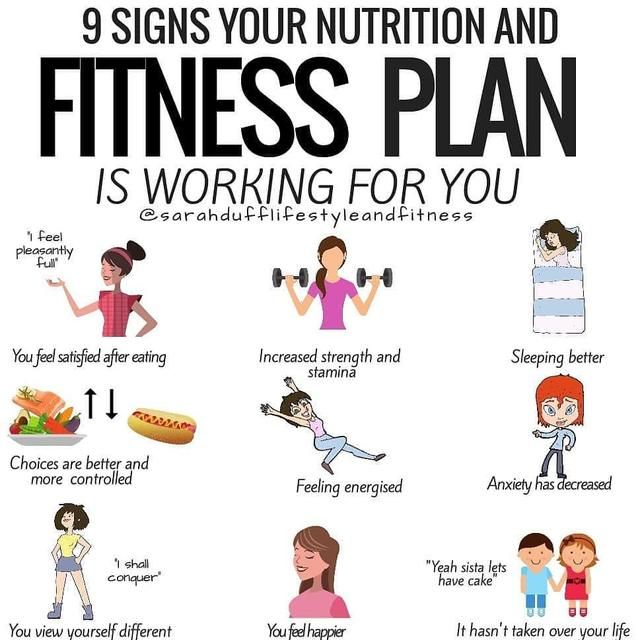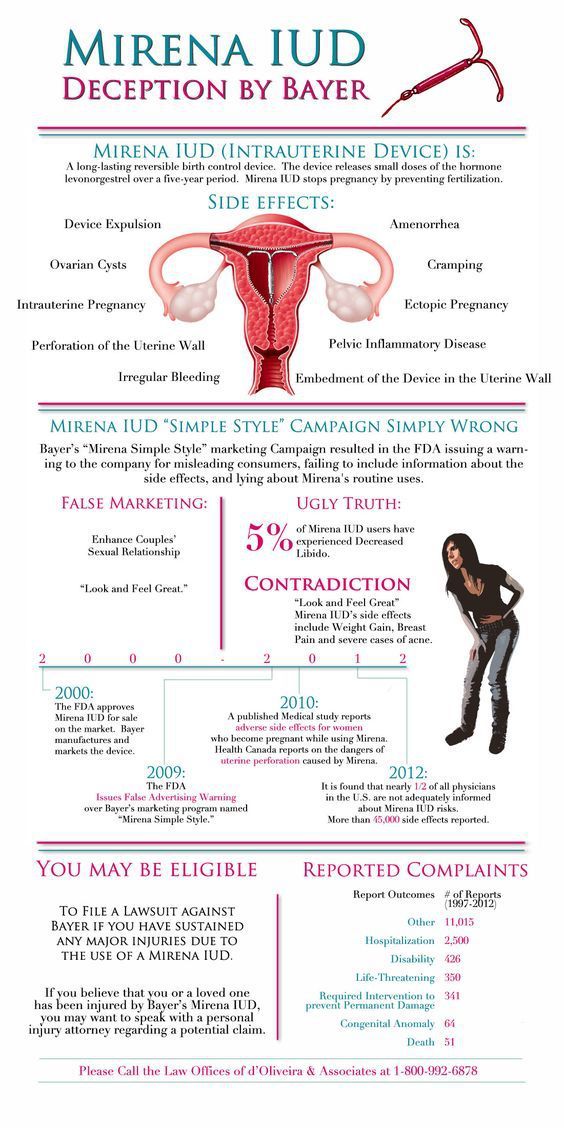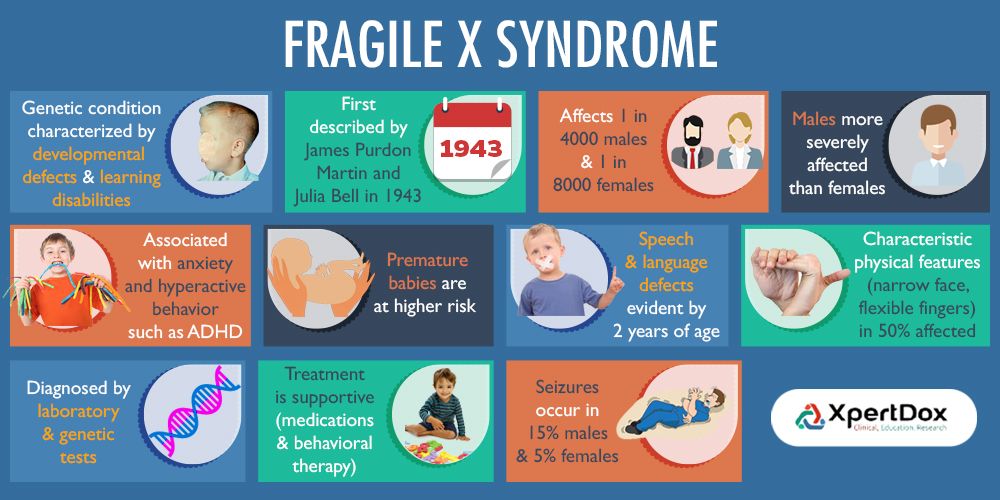How to tell if my child is overweight
Helping Your Child Who is Overweight
On this page:
- How can I tell if my child is overweight?
- Why should I be concerned?
- How can I help my child develop healthy habits?
- What can I do to improve my child’s eating habits?
- How can I help my child be more active?
- Where can I go for help?
- What should I look for in a weight-management program?
- How else can I help my child?
- What are clinical trials and what role do children play in research?
- What clinical trials are open?
As a parent or other caregiver, you can do a lot to help your child reach and maintain a healthy weight. Staying active and consuming healthy foods and beverages are important for your child's well-being. You can take an active role in helping your child—and your whole family—learn habits that may improve health.
How can I tell if my child is overweight?
Being able to tell whether a child is overweight is not always easy. Children grow at different rates and at different times. Also, the amount of a child’s body fat changes with age and differs between girls and boys.
One way to tell if your child is overweight is to calculate his or her body mass index (BMI). BMI is a measure of body weight relative to height. The BMI calculator uses a formula that produces a score often used to tell whether a person is underweight, a normal weight, overweight, or obese. The BMI of children is age- and sex-specific and known as the “BMI-for-age.”
BMI-for-age uses growth charts created by the U.S. Centers for Disease Control and Prevention. Doctors use these charts to track a child’s growth. The charts use a number called a percentile to show how your child's BMI compares with the BMI of other children. The main BMI categories for children and teens are
- healthy weight: 5th to 84th percentile
- overweight: 85th to 94th percentile
- obese: 95th percentile or higher
Why should I be concerned?
You should be concerned if your child has extra weight because weighing too much may increase the chances that your child will develop health problems now or later in life.
In the short run, for example, he or she may have breathing problems or joint pain, making it hard to keep up with friends. Some children may develop health problems, such as type 2 diabetes, high blood pressure, and high cholesterol. Some children also may experience teasing, bullying, depression, or low self-esteem.
Children who are overweight are at higher risk of entering adulthood with too much weight. The chances of developing health problems such as heart disease and certain types of cancer are higher among adults with too much weight.
BMI is a screening tool and does not directly measure body fat or an individual child’s risk of health problems. If you are concerned about your child's weight, talk with your child’s doctor or other health care professional. He or she can check your child's overall health and growth over time and tell you if weight management may be helpful. Many children who are still growing in length don’t need to lose weight; they may need to decrease the amount of weight they gain while they grow taller.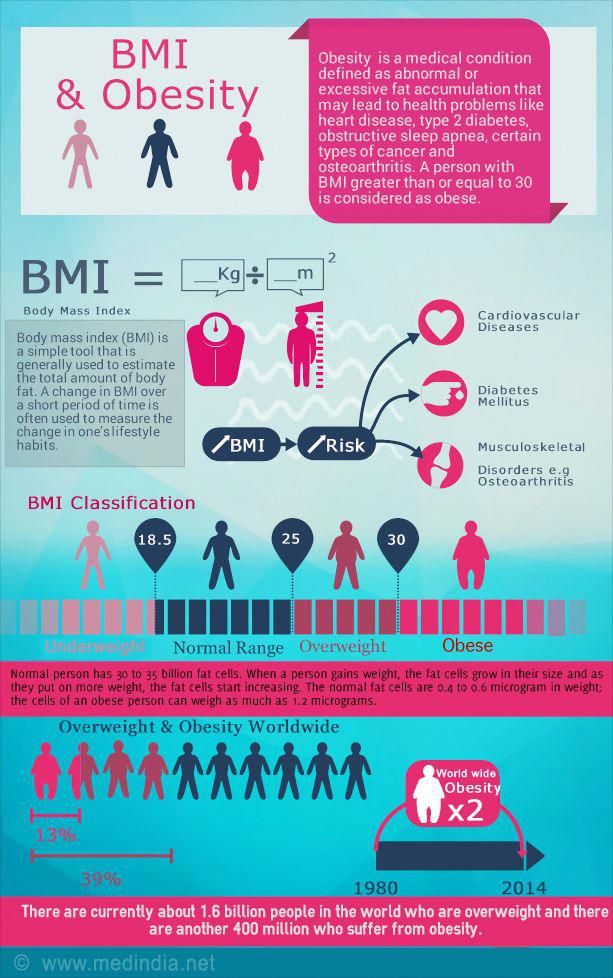 Don't put your child on a weight-loss diet unless your child’s doctor tells you to.
Don't put your child on a weight-loss diet unless your child’s doctor tells you to.
How can I help my child develop healthy habits?
You can play an important role in helping your child build healthy eating, drinking, physical activity, and sleep habits. For instance, teach your child about balancing the amount of food and beverages he or she eats and drinks with his or her amount of daily physical activity. Take your child grocery shopping and let him or her choose healthy foods and drinks, and help plan and prepare healthy meals and snacks. The Dietary Guidelines for Americans, 2020–2025 explain the types of foods and beverages to include in a healthy eating plan.
Here are some other ways to help your child develop healthy habits:
- Be a good role model. Consume healthy foods and drinks, and choose active pastimes. Children are good learners, and they often copy what they see.
- Talk with your child about what it means to be healthy and how to make healthy decisions.
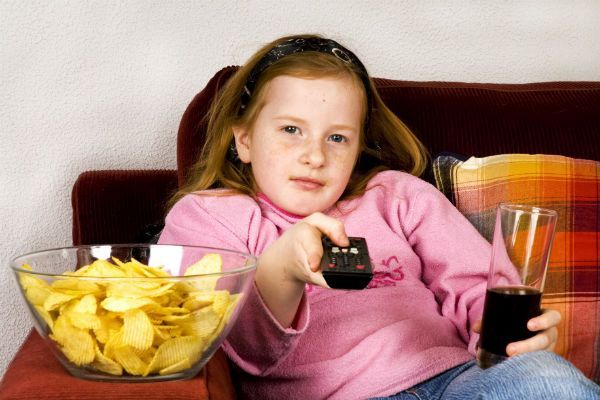
- Discuss how physical activities and certain foods and drinks may help their bodies get strong and stay healthy.
- Children should get at least an hour of physical activity (PDF, 14.2 MB) daily and should limit their screen time (computers, television, and mobile devices) outside of school work to no more than 2 hours each day.
- Chat about how to make healthy choices about food, drinks, and activities at school, at friends’ houses, and at other places outside your home.
- Discuss how physical activities and certain foods and drinks may help their bodies get strong and stay healthy.
- Involve the whole family in building healthy eating, drinking, and physical activity habits. Everyone benefits, and your child who is overweight won’t feel singled out.
- Make sure you child gets enough sleep. While research about the relationship between sleep and weight is ongoing, some studies link excess weight to not enough sleep in children and adults.1 How much sleep your child needs (PDF, 222 KB) depends on his or her age.

What can I do to improve my child’s eating habits?
Besides consuming fewer foods, drinks, and snacks that are high in calories, fat, sugar, and salt, you may get your child to eat healthier by offering these options more often:
- fruits, vegetables, and whole grains such as brown rice
- lean meats, poultry, seafood, beans and peas, soy products, and eggs, instead of meat high in fat
- fat-free or low-fat milk and milk products or milk substitutes, such as soy beverages with added calcium and vitamin D, instead of whole milk or cream
- fruit and vegetable smoothies made with fat-free or low-fat yogurt, instead of milk shakes or ice cream
- water, fat-free, or low-fat milk, instead of soda and other drinks with added sugars
You also may help your child eat better by trying to
- Avoid serving large portions, or the amount of food or drinks your child chooses for a meal or snack.
 Start with smaller amounts of food and let your child ask for more if he or she is still hungry. If your child chooses food or drinks from a package, container, or can, read the Nutrition Facts Label (PDF, 753 KB) to see what amount is equal to one serving. Match your child’s portion to the serving size listed on the label to avoid extra calories, fat, and sugar.
Start with smaller amounts of food and let your child ask for more if he or she is still hungry. If your child chooses food or drinks from a package, container, or can, read the Nutrition Facts Label (PDF, 753 KB) to see what amount is equal to one serving. Match your child’s portion to the serving size listed on the label to avoid extra calories, fat, and sugar. - Put healthy foods and drinks where they are easy to see and keep high-calorie foods and drinks out of sight—or don’t buy them at all.
- Eat fast food less often. If you do visit a fast-food restaurant, encourage your child to choose healthier options, such as sliced fruit instead of fries. Also, introduce your child to different foods, such as hummus with veggies.
- Try to sit down to family meals as often as possible, and have fewer meals “on the run.”
- Discourage eating in front of the television, computer, or other electronic device.
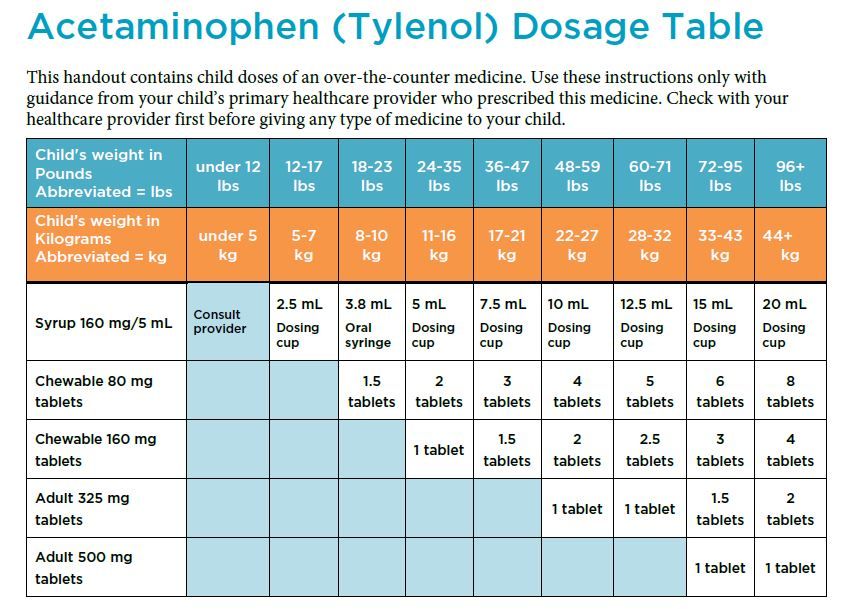
To help your child develop a healthy attitude toward food and eating:
- Don’t make your child clean his or her plate.
- Offer rewards other than food or drinks when encouraging your child to practice healthy habits. Promising dessert for eating vegetables sends a message that vegetables are less valuable than dessert.
Healthy snack ideas
To help your child eat less candy, cookies, and other unhealthy snacks, try these healthier snack options instead:
- air-popped popcorn without butter
- fresh, frozen, or fruit canned in natural juices, plain or with fat-free or low-fat yogurt
- fresh vegetables, such as baby carrots, cucumbers, zucchini, or cherry tomatoes
- low-sugar, whole-grain cereal with fat-free or low-fat milk, or a milk substitute with added calcium and vitamin D
How can I help my child be more active?
Try to make physical activity fun for your child. Children need about 60 minutes of physical activity a day, although the activity doesn't have to be all at once. Several short 10- or even 5-minute spurts of activity throughout the day are just as good. If your child is not used to being active, encourage him or her to start out slowly and build up to 60 minutes a day.
Several short 10- or even 5-minute spurts of activity throughout the day are just as good. If your child is not used to being active, encourage him or her to start out slowly and build up to 60 minutes a day.
To encourage daily physical activity:
- Let your child choose a favorite activity to do regularly, such as climbing a jungle gym at the playground or joining a sports team or dance class.
- Help your child find simple, fun activities to do at home or on his or her own, such as playing tag, jumping rope, playing catch, shooting baskets, or riding a bike (wear a helmet).
- Limit time with the computer, television, cell phone, and other devices to 2 hours a day.
- Let your child and other family members plan active outings, such as a walk or hike to a favorite spot.
Where can I go for help?
If you have tried to change your family's eating, drinking, physical activity, and sleep habits and your child has not reached a healthy weight, ask your child’s health care professional about other options. He or she may be able to recommend a plan for healthy eating and physical activity, or refer you to a weight-management specialist, registered dietitian, or program. Your local hospital, a community health clinic, or health department also may offer weight-management programs for children and teens or information about where you can enroll in one.
He or she may be able to recommend a plan for healthy eating and physical activity, or refer you to a weight-management specialist, registered dietitian, or program. Your local hospital, a community health clinic, or health department also may offer weight-management programs for children and teens or information about where you can enroll in one.
What should I look for in a weight-management program?
When choosing a weight-management program for your child, look for a program that
- includes a variety of health care providers on staff, such as doctors, psychologists and registered dietitians.
- evaluates your child's weight, growth, and health before enrollment and throughout the program.
- adapts to your child’s specific age and abilities. Programs for elementary school-aged children should be different from those for teens.
- helps your family keep healthy eating, drinking, and physical activity habits after the program ends.
How else can I help my child?
You can help your child by being positive and supportive throughout any process or program you choose to help him or her achieve a healthy weight.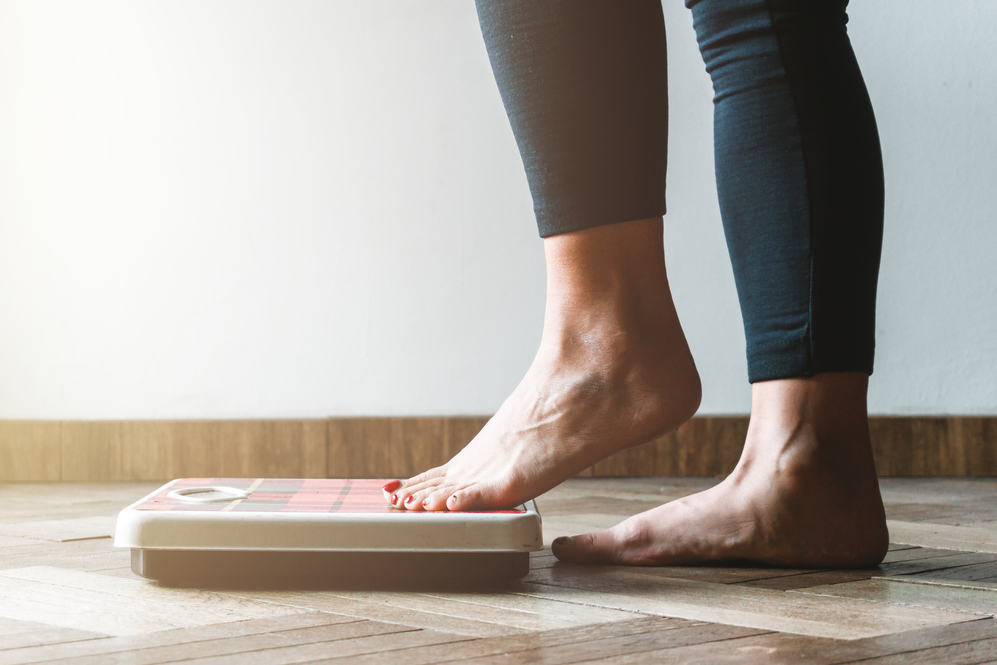 Help your child set specific goals and track progress. Reward successes with praise and hugs.
Help your child set specific goals and track progress. Reward successes with praise and hugs.
Tell your child that he or she is loved, special, and important. Children's feelings about themselves are often based on how they think their parents and other caregivers feel about them.
Listen to your child's concerns about his or her weight. He or she needs support, understanding, and encouragement from caring adults.
References
What are clinical trials and what role do children play in research?
Clinical trials are research studies involving people of all ages. Clinical trials look at safe and effective new ways to prevent, detect, or treat disease. Researchers also use clinical trials to look at other aspects of care, such as improving quality of life. Research involving children helps scientists
- identify care that is best for a child
- find the best dose of medicines
- find treatments for conditions that only affect children
- treat conditions that behave differently in children
- understand how treatment affects a growing child’s body
Find out more about clinical trials and children.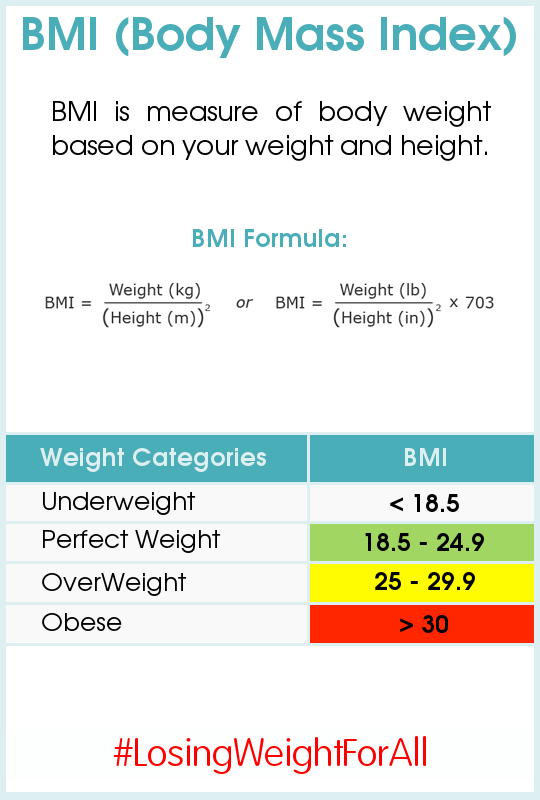
What clinical trials are open?
Clinical trials that are currently open and are recruiting can be viewed at www.ClinicalTrials.gov.
5 signs your child may be overweight
Follow Us!
For further help and insightful content like
this, subscribe to our newsletter
Posted by Charlotte HomeFamilies, Health, parenting, wellbeing
Do you know if your child is overweight? Research suggests that parents sometimes find it difficult to spot the signs. But don’t panic – if you’re not sure, read on for five signs your child may be carrying some excess weight…
1. BMI
Finding out your child’s BMI us the best way of understanding their weight.
Children’s BMI (Body Mass Index) is worked out slightly differently to adults, as their age and gender are taken into account as well as their height and weight. Children’s BMI scores are presented as a “centile”, and if your child is over the 91st centile it would suggest they are carrying some excess weight.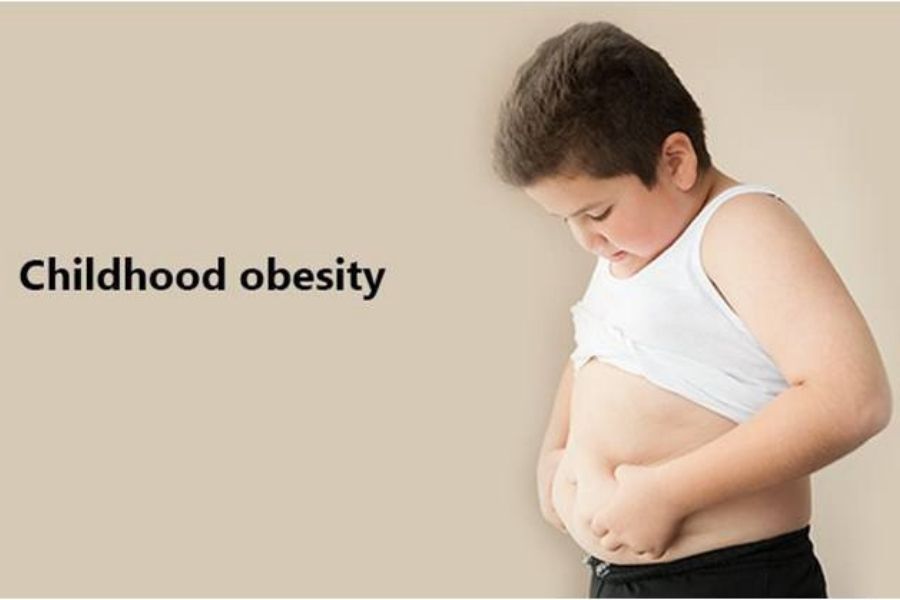
There are a few ways you can check your child’s BMI:
- Go to your GP
- At a pharmacy
- Follow these steps at home – you will need scales and a tape measure:
- Weigh them on the scales
- Measure their height by standing them next to a wall and marking with a pencil where the top of their head is on the wall (gently press a book or something flat on the top of their head to find the highest point) and then using a tape measure, measure from the floor up to the mark
- Input their measurements into the NHS BMI calculator
- Or, call your local BeeZee Bodies office and we’ll work it out for you.
2. Friends & peers
You might have noticed that your child looks larger than their school friends and you may have put it down to them having a growth spurt… but if they continue to be larger than their peers, they could be carrying excess weight.
Early intervention can be really helpful here.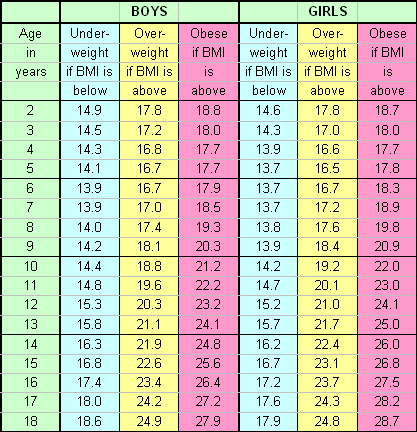 At our BeeZee Families programme we often find that families can make a couple of small changes which can lead to having big impact on their child’s health.
At our BeeZee Families programme we often find that families can make a couple of small changes which can lead to having big impact on their child’s health.
3. School uniform sizes
With the kids going back to school in September perhaps you’re buying new school uniforms and during the process you’ve noticed they’ve put on a little bit of extra weight since last time, or you need to buy a larger size than their age?
Getting children’s sizes right can be really challenging; it varies from shop to shop and children of the same age are all different sizes. We absolutely recognise that clothes sizes are not representative of age, as they do not take height or other factors into account – but buying a larger age size could be an indicator that your child may be above a healthy weight.
4. Physical activity
Sometimes parents might notice their child is carrying excess weight when they are physically active.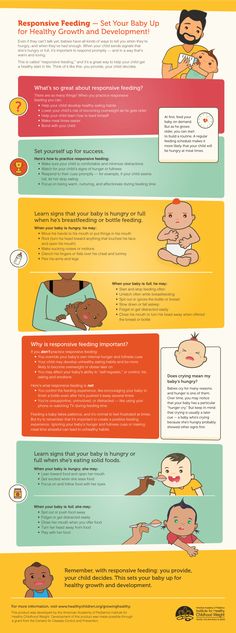 Common signs are; struggling to keep up with friends, needing to take more breaks than their peers, getting out of breath quickly or maybe they’re sweating more than their friends.
Common signs are; struggling to keep up with friends, needing to take more breaks than their peers, getting out of breath quickly or maybe they’re sweating more than their friends.
We understand that every child is different and that these signs are not an exact science, however they may help to build a picture.
At BeeZee Families we can help children to build up skills and confidence around exercise and help them to find a sport or activity they love.
5. Self image
Children can become self-conscious for multiple reasons, however as children grow up they can become more self-aware of their body image (If your child is struggling with body image issues, be sure to check out our Parent’s Guide to promoting a positive body image)
Often body image issues can arise from influences from social media, the internet and TV. We want our children to be happy and comfortable in their own skin but we can’t lock them away from the world in order to achieve this.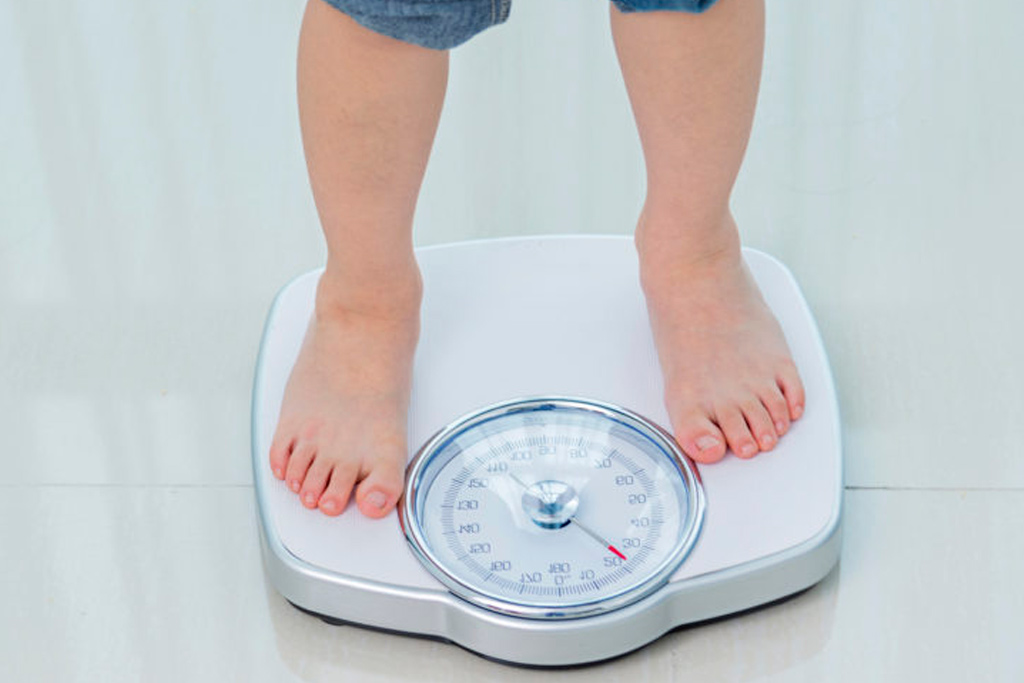 But sometimes children can become self-conscious because they realise they are carrying more weight than their peers.
But sometimes children can become self-conscious because they realise they are carrying more weight than their peers.
At BeeZee Families we focus on health and not weight or image, and work really hard on improving children’s self-esteem and confidence.
Sign up to BeeZee Families
What to do if a child is overweight
February 28, 2018Health
Signs by which you can distinguish excess weight from normal and quite healthy children's fatness.
Share
0Chubby babies are definitely cute. Especially in the form of angels in the paintings of Michelangelo or Raphael. But when it comes to real life, being overweight can be a problem.
Lifehacker figured out where the line is between "big bones" and being overweight, which can not only burden a child's relationships with peers, but also crush them with non-childish health problems.
How to recognize overweight in a child
Everything seems to be simple.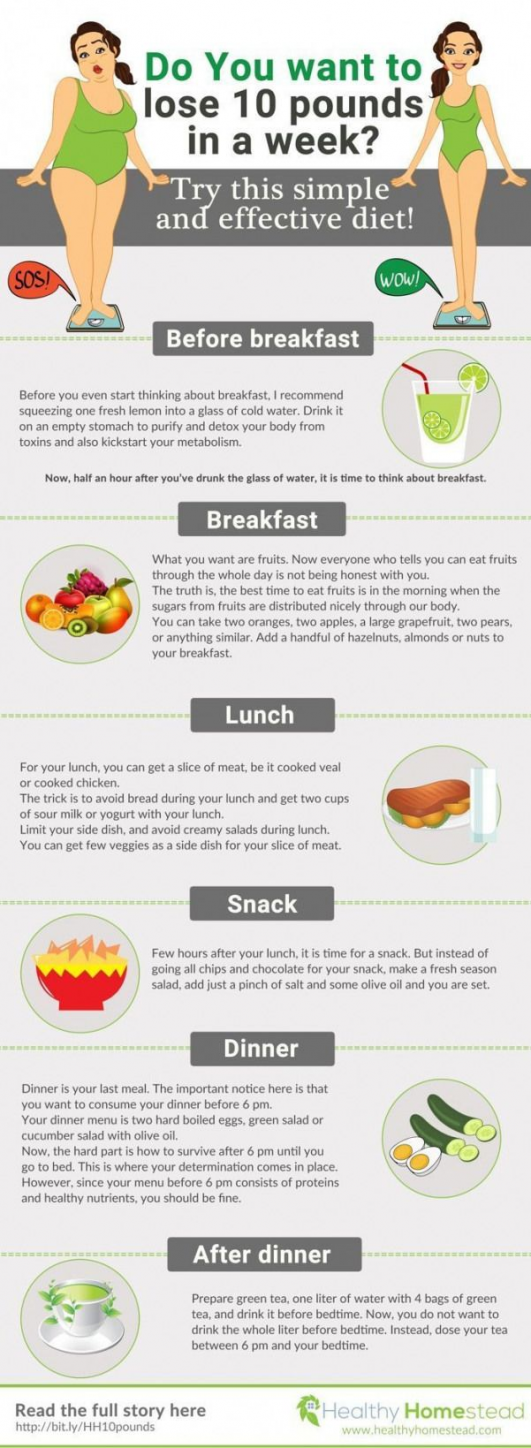 There are standards Child growth standards., Linking height and weight in children of a certain gender and age. If the child falls into the standard - all is well. If his weight exceeds the norm, this indicates a certain degree of obesity.
There are standards Child growth standards., Linking height and weight in children of a certain gender and age. If the child falls into the standard - all is well. If his weight exceeds the norm, this indicates a certain degree of obesity.
In general terms, you can deal with weight like this:
- Calculate the body mass index (BMI): divide the child's body weight in kilograms by the square of height in centimeters.
- We compare BMI with the standards established by the World Health Organization.
However, it is important to take into account a number of nuances. Excess weight (relative to the accepted age norm) may be due to Childhood obesity. by no means obese, but simply the large size of the body of the child. There is also such a factor as the age distribution of fat. It is individual, and some 6-year-olds may retain the plumpness inherent in 2-year-olds - this is also normal.
Only a pediatrician can assess which category a child belongs to and whether it is necessary to talk about overweight. Here's what the medic will do:
Here's what the medic will do:
- Calculates body mass index.
- Compare the obtained value with the tables where the About Child & Teen BMI guidelines are specified. for every age and gender.
- Review the child's developmental and growth history.
- Ask about your family history and physique of you and your ancestors.
Only after receiving this information and examining a small patient, the pediatrician will make a verdict: is it worth worrying about excess weight or the child's physique, even if it is significantly ahead of peers in weight, does not inspire fear.
Why parents do not notice overweight in children
Unfortunately, childhood obesity is a common phenomenon. According to statistics Obesity and overweight. WHO, in 2016, 41 million children under 5 years of age and over 340 million children and adolescents between 5 and 19 years of age were overweight to some extent. These are significant numbers. So, in the USA, Prevalence of Childhood Obesity in the United States, 2011–2014 suffers from obesity. every sixth child from 2 to 19 years old.
So, in the USA, Prevalence of Childhood Obesity in the United States, 2011–2014 suffers from obesity. every sixth child from 2 to 19 years old.
It would seem that he named the problem - he has already done half the work. But not in this case. As the study Parents’ perception of their child’s weight status and intention to intervene: a Western Australian cross-sectional population survey, 2009–12., conducted by Australian scientists, shows, many parents simply refuse to admit that their children are overweight. Only 23% of moms and dads whose babies were diagnosed with obesity said they would try to help their child lose those extra pounds.
More than half of the parents reported that they were not going to interfere, and their overly chubby baby is so good.
Sounds nice: parents love and accept their children in any way. But, if you look deeper into the issue, this acceptance reveals a banal fear. The fact is that society places the responsibility for childhood obesity on parents. And people are simply afraid to look in the eyes of others as incompetent parents. It is easier for them to pretend that obesity does not exist in a child than to make excuses and suffer from guilt.
And people are simply afraid to look in the eyes of others as incompetent parents. It is easier for them to pretend that obesity does not exist in a child than to make excuses and suffer from guilt.
The New York Times devoted an entire article to this phenomenon, Do Parents Make Kids Fat?. Its author was Perri Klass, MD, an expert in the study of eating disorders of behavior. He and his colleagues emphasize that overweight in children is not always due to the incompetence of parents. Often it is a matter of the specific characteristics of the child, including his metabolism and eating habits. Moms and dads can't always influence that.
Feeling guilty about this is a destructive path. It is much more correct to admit: “Yes, my baby is overweight. There is no one to blame here. We just need to solve this problem together.”
Why is overweight dangerous?
Extra pounds are not only an aesthetic flaw. They bring with them a number of possible complications Childhood obesity.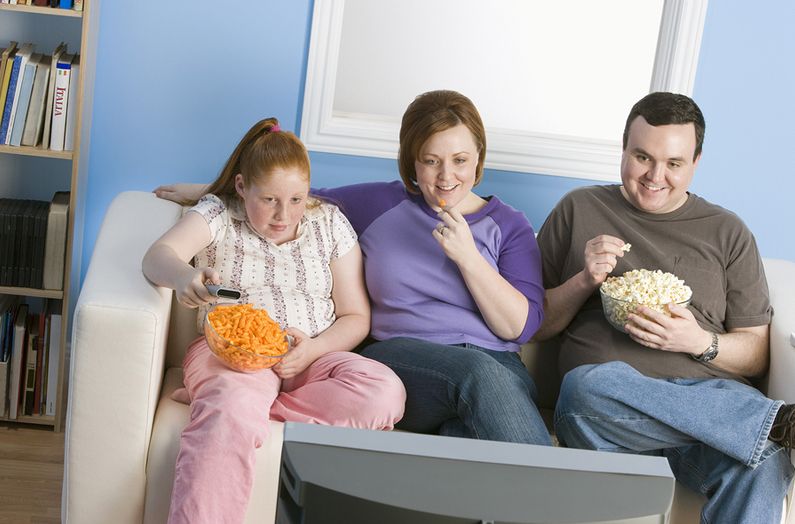 Here are just a few of them.
Here are just a few of them.
Type 2 diabetes
This chronic disease is associated with a malfunction in the processing of sugar (glucose). Obesity and a sedentary lifestyle are one of the ways to earn this unpleasant ailment.
Metabolic syndrome
This is a combination of physiological problems that increase the risk of developing cardiovascular disease and other metabolic disorders. These include, in particular, high blood pressure and high blood sugar.
High cholesterol
Cholesterol creates plaque in the arteries, significantly impairing blood flow. This can cause heart attacks and strokes.
Asthma
Overweight children have an increased risk of developing asthma. The reason for this is not entirely clear, but a link has been unequivocally established Obesity, Nutrition, and Asthma in Children. Subsequently, this can lead to cirrhosis.
Emotional problems
It is not limited to physical disorders.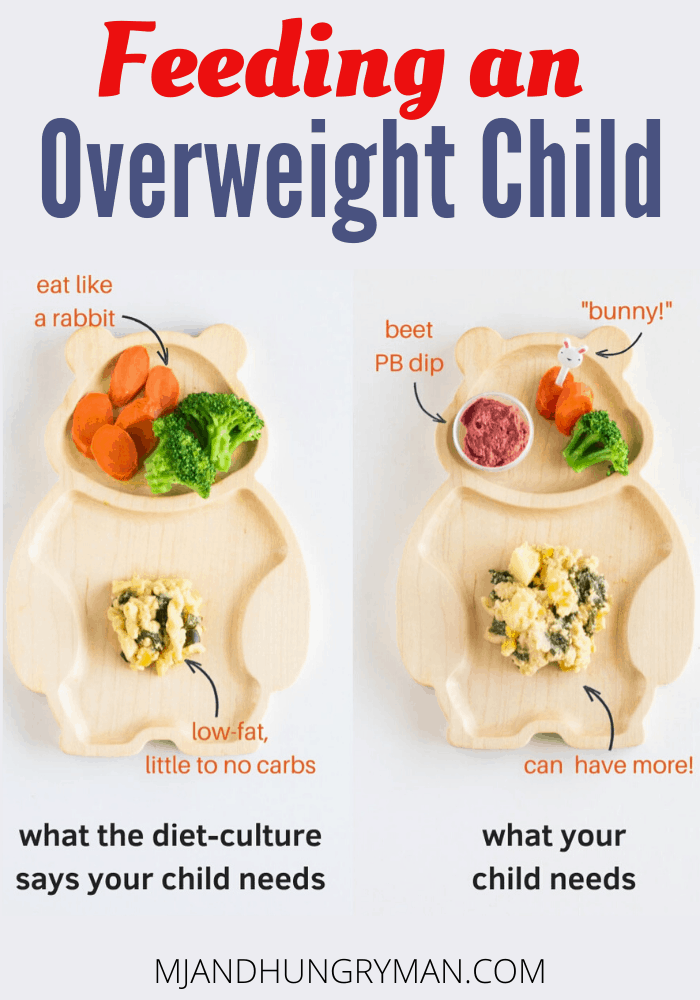 Research Weight Status as a Predictor of Being Bullied in Third Through Sixth Grades. unequivocally show that overweight children are more likely to be bullied by their peers. In addition, they are haunted by a feeling of loneliness, anxiety, depression, which adversely affects the quality of life.
Research Weight Status as a Predictor of Being Bullied in Third Through Sixth Grades. unequivocally show that overweight children are more likely to be bullied by their peers. In addition, they are haunted by a feeling of loneliness, anxiety, depression, which adversely affects the quality of life.
Causes of excess weight in children
Scientists honestly admit that modern science does not fully understand Do Parents Make Kids Fat? When both parents and children are overweight, the situation is more or less clear. A number of reasonable assumptions can be put forward here. For example, that family weight is affected by unhealthy eating habits: a love of fast food and a passion for ordering pizza for dinner. Or that the family pays too little attention to physical activity. Or the reason lies in some hereditary factors.
But it also happens differently: a fit, active sportsman who prefers healthy food of father and mother grows an excessively chubby child.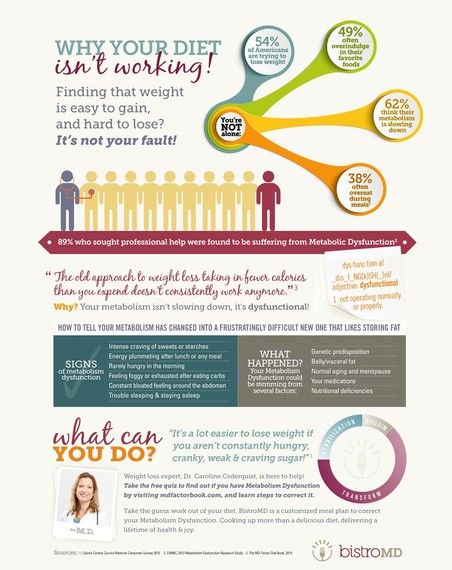 Or even more mysterious: both dad and mom, and even younger children are slim, and the older child has extra pounds.
Or even more mysterious: both dad and mom, and even younger children are slim, and the older child has extra pounds.
While acknowledging the difficulty of establishing clear causes that cause obesity, doctors still identify several factors Childhood obesity., each of which can lead to overweight. Most of the time they work together.
Unbalanced high-calorie diet
In simple words, the abuse of fast food and ready-made products from supermarkets. At risk are sweets, desserts, sugary drinks, including fruit juices.
Lack of physical activity
Here, too, everything is predictable: the more you sit, the fewer calories you spend. What is not wasted settles in the form of extra pounds.
Psychological factors
Stress and boredom increase the risk of developing obesity, as they force the child to “eat” negative experiences or “sweeten” a too gray life with high-calorie foods.
Socio-economic factors
If a person does not have enough money, he is likely to find it unnecessary to spend on a gym or buy rather expensive vegetables and fruits, without thinking about the consequences for their children.
What to do if your child is overweight
Knowing the reasons, you can draw up a simple action plan that is likely to be effective in combating excess weight. Here it is:
- Try not to give your child sugary drinks (lemonade, fruit juices). If possible, replace them with water, fruit drinks or compotes with a low sugar content.
- Include as many fruits and vegetables in the family diet as possible.
- Practice family breakfasts, lunches and dinners, limiting spontaneous snacking. At the common table, the child will eat less harmful than alone somewhere at the computer.
- Adjust portion sizes for each family member.
- Turn off the TV during meals and ask your children to put away their smartphones and tablets. Excess sounds make us unconsciously overeat.
- Make sure your children get involved in sports or other physical activities. Exercising is a great way to reduce stress levels and boost self-esteem at the same time.
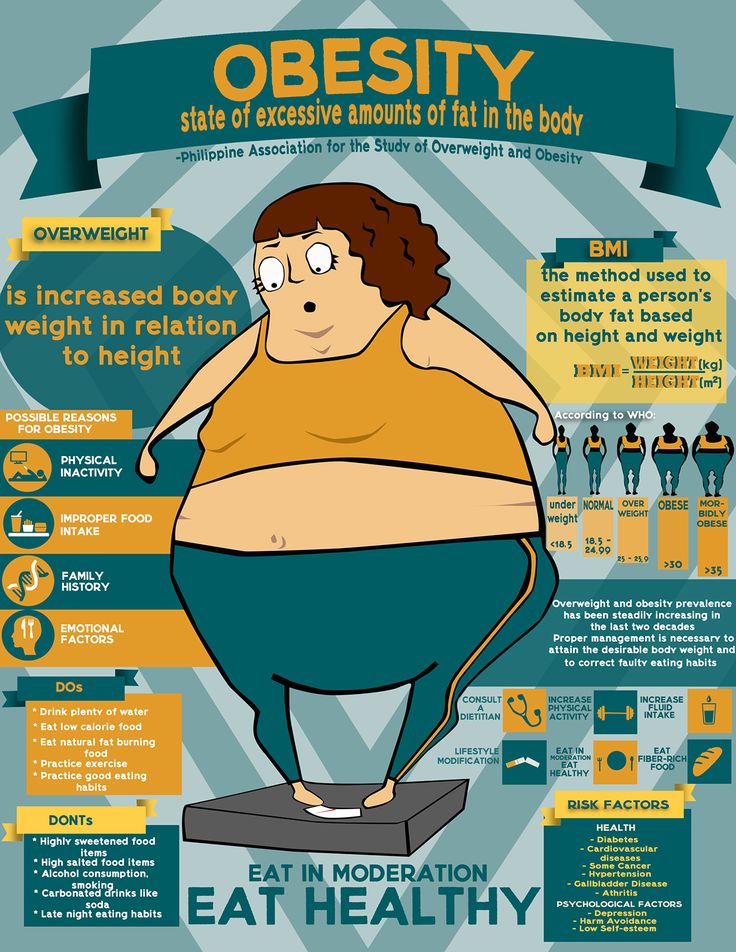
If a child has weight problems, a pediatrician should be consulted at least once a year. This will allow you to monitor the situation in dynamics and prevent deterioration.
Child overweight: 10 tips for parents
Obesity is a problem not only for adults, but also for children. What to do if your child is overweight?
If a member of your family is struggling with excess weight, it can be very difficult to resist advice, lectures, and even jokes. But when a child gets rid of extra pounds, you should be extremely careful not to injure the baby, who suffers because of his lack. Here are ten things to avoid if your child is overweight:
Look for someone to blame
Obesity in children has many causes, some of which are quite difficult to control. Wringing your hands and blaming yourself, food producers or doctors is not worth it. You just need to identify the problem and solve it: visit specialists together with your child, take tests and teach the whole family to eat right and move regularly.
Ignore problem
You should not consider the extra weight of the baby, his inactivity and shortness of breath as manifestations of childhood fullness, which will disappear on its own during the period of active growth. If you doubt that the child is overweight, try to calculate his body mass index yourself or go for a consultation at the Children's Health Center. This will allow you to determine how serious the problem is and immediately get expert advice.
Parents, know when to stop!
Do you encourage your child to play sports? Remember that the line between encouragement and coercion is very thin. How not to overdo it and not discourage the child's desire to study?
Create forbidden fruit
Banning products outright can backfire. Chances are your child will start to provoke conflicts over food and look for favorite treats on the way from school. And you will definitely feel guilty.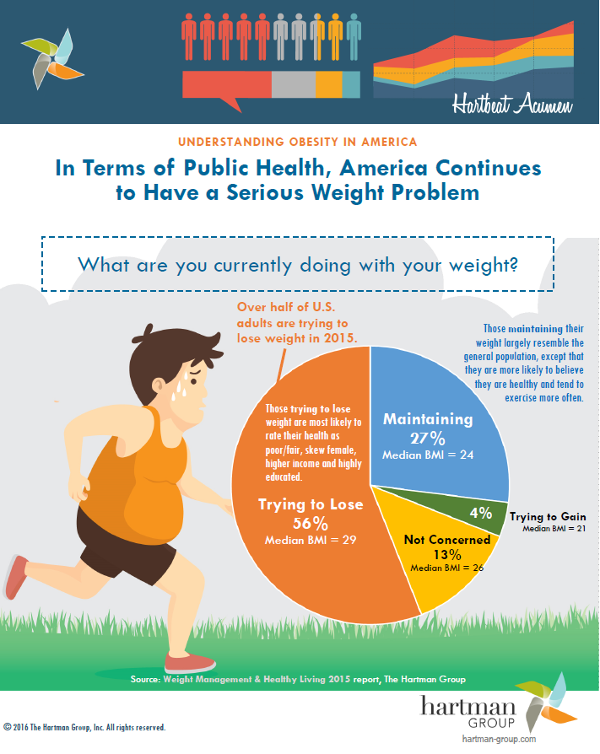 You need to show the kid personal healthy example and explain in a simple way what sweets and chips do for the health of adults and children. Toddlers understand much more than adults seem to understand - provided that they communicate with them on an equal footing.
You need to show the kid personal healthy example and explain in a simple way what sweets and chips do for the health of adults and children. Toddlers understand much more than adults seem to understand - provided that they communicate with them on an equal footing.
Encourage a sedentary lifestyle
If you decide to fight the overweight of the child, you will have to forget about passive leisure yourself. Try to walk together, sign up for a pool or purchase a subscription to a water park, get out into nature more often and even just for city walks . Buy your child a bike, roller skates, or skateboard. Perhaps this will allow him to join the company of mobile peers. Encourage easy household chores that require physical effort: cleaning, taking out the trash, going to the store. Involve your child in gardening at their summer cottage. Another important point is to limit the amount of time you watch TV or play computer games, especially before bed.
Being a bad example
Every child needs a role model. Of course, the first and foremost should be his parents. Therefore, the practice of "do as I say, not as I do" deprives you of authority, and the child - of understanding how to act. The fact that exercise is fun, and the right food is delicious, you must show by personal example. If you eat dumplings with mayonnaise, but at the same time try to feed boiled vegetables to your baby, there will be no positive result.
Punish the child
It is much easier to point out to the baby what he is doing wrong. Your task is to highlight its correct behavior. Don't skimp on praise. Say: “You played football with the guys in the yard today!” - while closing his eyes on dirty sneakers and torn pants. A reward strategy is always more effective because it helps the child gain self-esteem.
Use food as a reward
Instead of offering ice cream for a good grade or buying a burger as an apology, remember when you just talked to your child: praised him or admitted that you were wrong.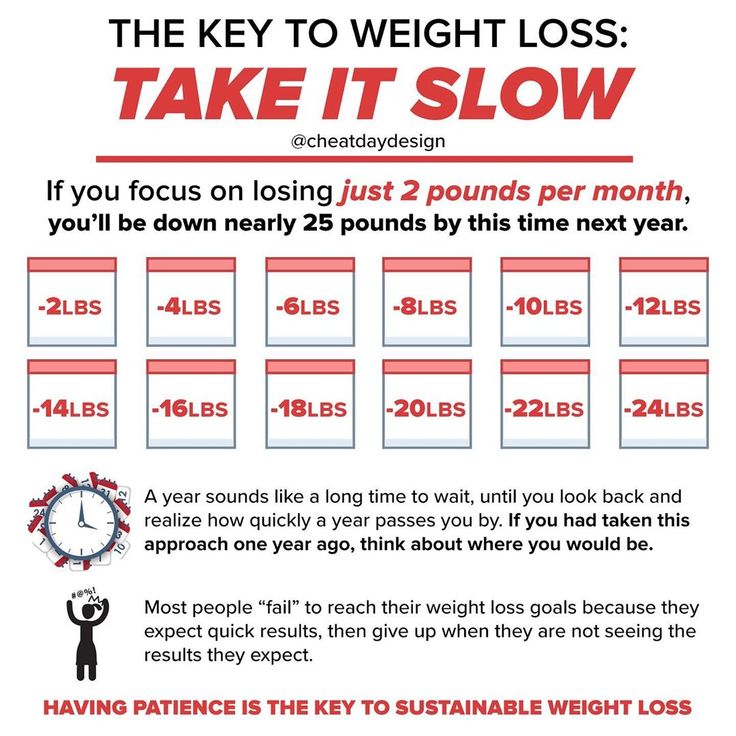 If you want to encourage your baby, let him take a walk or give him a gift that encourages him to be physically active.
If you want to encourage your baby, let him take a walk or give him a gift that encourages him to be physically active.
Set unattainable goals
Lifestyle changes are best started small. Help your child set small, achievable goals, like doing five minutes of exercise every day. Celebrate every small victory as if it were a big one - even small steps towards a healthy lifestyle can be considered a big achievement. Both yours and your baby.
Adolescents need help too
Weight control is important not only in childhood, but also in adolescence. Remember, the weight of a teenager is the concern of parents.
Decide for the child what is best for him
Of course, playing hockey or gymnastics will give the baby a good physical activity and allow him to lose a kilogram or two. However, if the child does not like the sport you have chosen, the hard work will sooner or later end in stress and a sofa.